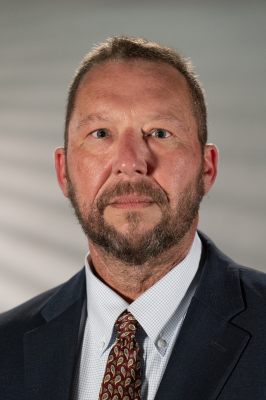Sul Ross State University has expanded its academic offerings with the launch of a new Doctor of Education (Ed.D.) program in Educational Leadership. Designed to prepare professionals for advanced leadership roles, the program emphasizes the skills, research expertise, and strategic thinking needed to drive innovation and improvement across educational and organizational settings. Whether in K–12 schools, higher education, government agencies, industry, or non-profit organizations, graduates of the program will be equipped to address complex challenges and lead institutions through times of change. The curriculum isvgrounded in the Carnegie Project on the Education Doctorate (CPED) principles, emphasizing scholarly practice, improvement, and transformative leadership, and aligns with Sul Ross State University’s long-standing commitment to serving diverse and rural communities across Texas and beyond.
A key feature of the new Ed.D. is the inclusion of specific cognates or specializations, allowing students to tailor their studies to their professional goals. The initial specialization offered – Educational Leadership with TEA SBEC Superintendent Certification – provides aspiring superintendents with the knowledge and credentials necessary to lead school districts effectively under Texas Education Agency (TEA) standards. This pathway integrates leadership theory, policy analysis, and real-world administrative practice to prepare educators for executive-level decision-making. Additional cognates will be introduced in the future, broadening opportunities for students to specialize in areas such as non-profit leadership, health care leadership, instructional innovation, or community development. Through this flexible and forward-looking program, Sul Ross State University continues to strengthen its role as a regional leader in educational advancement and professional preparation.
Our online, cohort-based Ed.D. program is designed for working professionals who aspire to deepen their leadership capacity and create sustainable improvement in educational systems.
Students engage in authentic, field-based research that connects theory, evidence, and practice to directly impact the communities they serve.
- Format: 100% online (with optional synchronous learning opportunities)
- Length: 3 years (9 semesters, including dissertation)
- Cohort Model: Build lasting professional networks with peers and faculty
- Focus Areas: Rural and Borderland Education, School and District Leadership, Organizational Improvement
Sul Ross embraces a Dissertation in Practice (DiP) model guided by Improvement Science, an applied research approach that emphasizes:
- Understanding systems and root causes of persistent problems
- Using data for continuous improvement
- Testing and refining change ideas through Plan–Do–Study–Act (PDSA) cycles
- Bridging theory and practice to improve outcomes for learners and communities
This approach ensures every graduate leaves the program as a scholarly practitioner—a leader who can use evidence-based inquiry to design, test, and lead meaningful change.
Instead of a traditional dissertation, Ed.D. candidates complete a Dissertation in Practice, an applied research project that directly addresses a real-world Problem of Practice (PoP) within their professional context.
Throughout the program, candidates engage in a structured series of learning and research experiences that guide them through the full improvement cycle—from problem identification to implementation and evaluation.
Key Milestones
| Stage | Focus | Outcome |
| Define | Identify and analyze a real-world Problem of Practice | Approved PoP statement |
| Investigate | Review literature and develop theory of improvement | Completed literature review |
| Design | Build research plan and select improvement methods | Approved methods section |
| Implement | Conduct PDSA cycles and collect data | Results/findings chapter |
| Reflect | Analyze impact, reflect on lessons learned, and defend | Completed and defended DiP |
The 60-hour Ed.D. curriculum blends theory, research, and applied leadership practice across nine semesters.
| Year | Focus | Examples of Courses |
| Year 1 | Understanding Systems and Defining the Problem of Practice | Science of Change and Improvement, Trends in Rural and Borderland Contexts |
| Year 2 | Research Design and Theory of Improvement | Understanding Research Design, Lab: Examining Problems of Practice |
| Year 3 | Methods, Implementation, and Reflection | Dissertation I & II, Strategic Planning and Evaluation, Change Management and Systems Thinking |
Each semester includes structured checkpoints and feedback from faculty mentors to ensure steady progress toward dissertation completion.
For more information contact:


